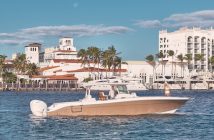Holidaymakers are increasingly becoming environmentally conscious when planning their travel abroad, particularly when it comes to far-flung destinations. And while many hotels and resorts are claiming they put sustainability at the heart of what they do, how much of what is said actually makes it into action? Beachcomber Resorts, with a portfolio of eight luxury hotels dotted around Mauritius, is one company that takes its environmental responsibility very seriously.
They’re applying sustainable principles across virtually every facet of their operation – currently fulfilling an ambitious 52 commitments to sustainability. Whether using recycled wastewater for irrigation, or getting 10% of their energy from solar, to recycling nearly 40% of waste – including Nespresso capsules, candles and cooking oil. Leftover buffet food goes to a local charity, or to pig farmers, and the hotels have beehives, too, helping support the natural ecosystem.
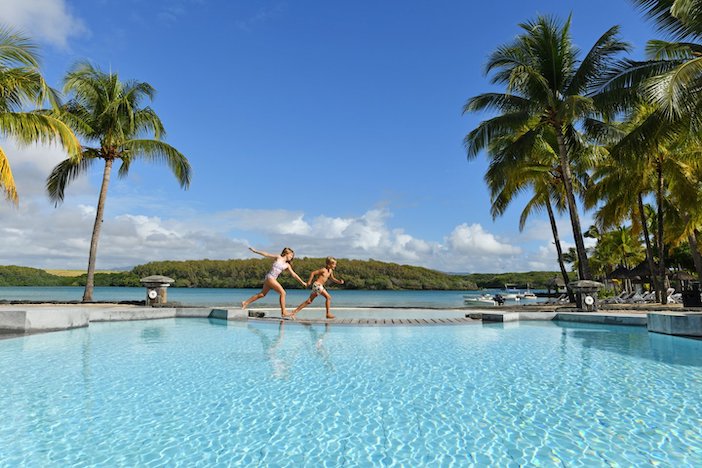
Being a sustainability conscious traveller myself, I was keen to understand how far they go, planning my latest holiday around a trio of Beachcomber properties to find out how they blend luxury with environmental and social sustainability – and whether it’s something they manage to do seamlessly, or whether anything comes at the expense of the guests’ ‘luxury’ experience.
Nicknamed the ‘Paradise Island’, Mauritius is one of the most successful economies in Africa, and with striking cultural diversity: Hindu, Muslim, Chinese, Catholic and Creole citizens all call this country their home. And while Mauritius is arguably most famous for its palm-fringed white sand beaches, it also boasts spectacular mountains, lush sugar cane fields and crystal-blue lagoons. In short, it’s an ideal spot for a good, long dose of paradise.
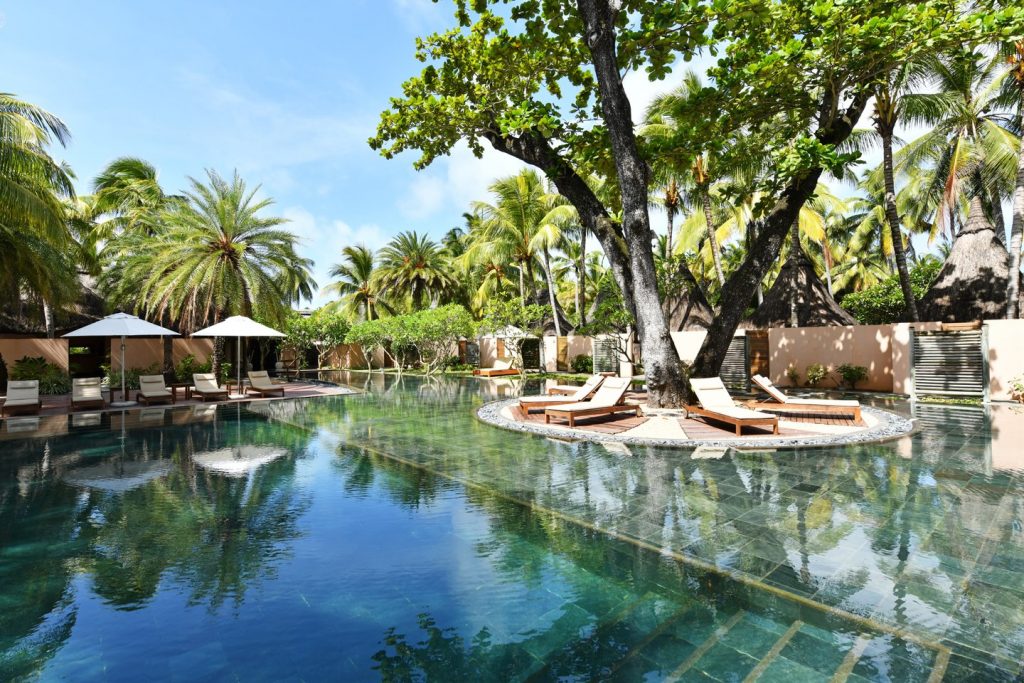
My first stop was the four-star Shandrani resort, just 10 minutes’ drive from the airport. With three dedicated beaches and an array of water sports, notably windsurfing and kite-surfing for being on the windward side of the island, and a spa. Personally, I was happy snorkelling with tropical fish – not to mention indulging in the most heavenly all-over-body massage just hours after landing from the 12-hour flight from Gatwick.
Trou Aux Biches, a five-star resort on the northwest of the island, was next on my itinerary. Set along a strip of luminescent white sand, this was the perfect place for dramatic sunsets. There’s a PADI diving centre, another gorgeous spa, gym, and kids’ club – open until 11pm, would you believe. There’s also an array of cultural activities on offer at each Beachcomber property, including rum and wine tastings, and cookery classes.
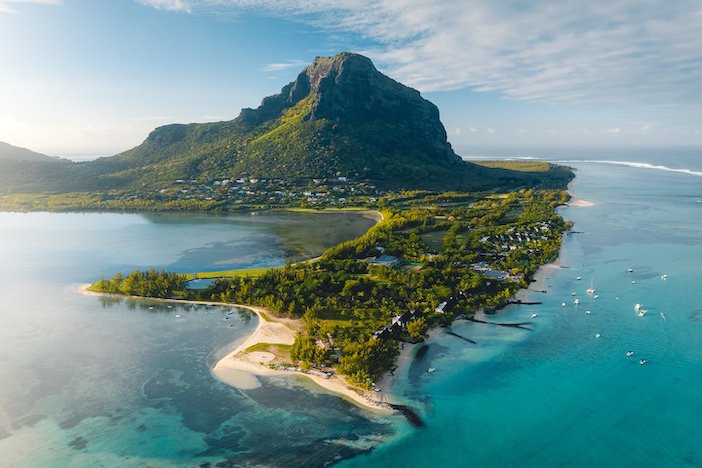
Paradis, in the southwest of the island, completed my trip. This five-star hotel, next to the breathtaking Le Morne Brabant mountain, re-opened its doors last October after a €12 million renovation – and it shows – where even the renovation considered where sustainable gains could be made. As well as renovating some of the restaurants and hotel rooms, Paradis’s golf course was upgraded to include 800 sprinklers, individually controlled – using recycled water.
So far, so (very) luxurious. The customer service was polite and attentive, and the rooms comfortable and elegant. But let’s get down to business. How sustainably can you really run eight large hotels?
“As the biggest hotel group in Mauritius,” Beachcomber’s Risk & Compliance Officer Géraldine Koenig tells me, “it’s important to set the tone for the island. We take sustainability very seriously, aiming for 100% of our energy to be green in two years’ time, and to recycle 60% of our waste by next year.” With 3,090 solar panels installed on the hotels’ roofs to date, they’re making steady progress to that target. And there are recycling bins around the resorts, and guests are encouraged to use those in the rooms.
The environmental commitments are, arguably, more impressive due to Mauritius not exactly being known for its green credentials. “All waste in Mauritius ordinarily goes to landfill,” notes Géraldine, “you have to use a private firm to recycle.”
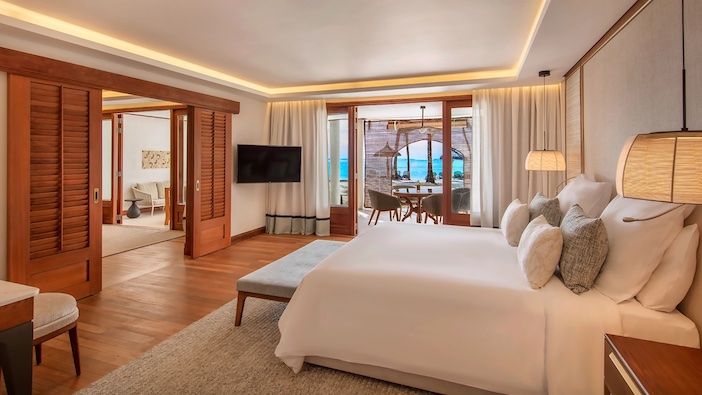
And what about all those enticing offerings catering for every guests’ need? Geraldine admits that it can be tricky making five-star buffets environmentally-friendly. “Buffets are a challenge,” she says, “as guests expect a big spread, and there are always leftovers. So, we use leftover fruit to make jams and syrups, and give immaculate, untouched food to a charity called FoodWise. Other leftovers go to pig farmers.”
All this sounded very reassuring, but I was conscious this was simply Beachcomber telling me what they do, but Géraldine added it was vital a third party could validate what it was doing in terms of respecting the planet.It asked EarthCheck, a scientific benchmarking certification and advisory group for the travel and tourism industry, to assess the hotel chain. It looks at consumption of water, paper and energy; waste management; responsible use of pesticides; proper use of maintenance and hygiene products; and involvement with local communities. Every Beachcomber hotel now has silver or gold EarthCheck status.
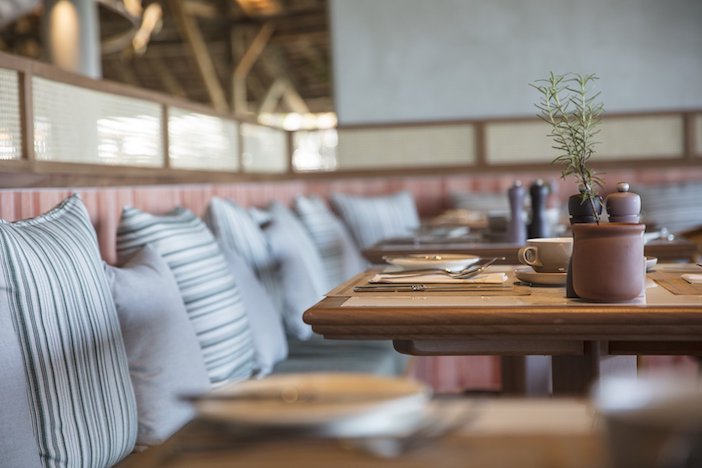
Equally, to check up on Beachcomber’s sustainability credentials, guests can go on a free behind-the-scenes “green tour” to find out how it looks after the planet. I elected to do this at Paradis, visiting the beehives. Beekeeper Etienne de Senneville looks after five hives at each hotel. There can be as many as 56,000 bees in each hive, and each hive produces up to 14kg of honey.
It’s a labour of love as well as man hours, “Mauritian bees,” Etienne tells me, “are a bit more aggressive. I’ve been stung often, but I’m more careful now.” He shows me some honeycomb and I press my finger lightly so that honey spills out and I can’t resist a taste – a pure, sweet taste I’ll never forget. Etienne says the bees will repair the honeycomb straight away, adding, “We don’t steal the honey, we only take the surplus.”
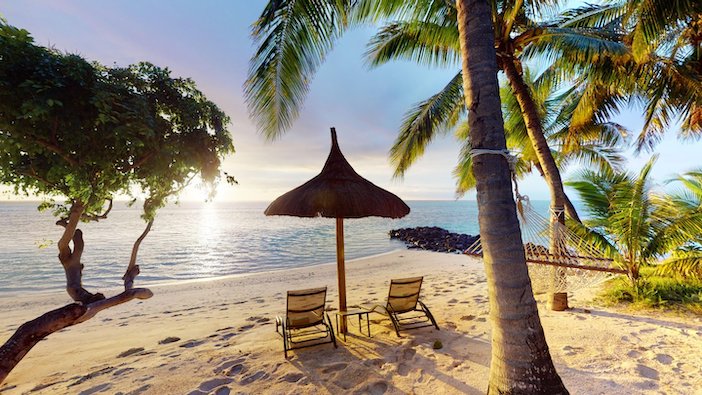
It was my first time in Mauritius, and Beachcomber certainly delivered on showcasing relaxed luxury against a backdrop of incredible scenery. Each hotel had lush, fragrant gardens as well as stunning beaches and mesmerising swimming pools. I learnt about the island through visiting Beautiful Hands, which promotes the work of local craftsmen and traditional Mauritian crafts, taking part in a rum tasting (the local industry is thriving), going on a dolphin safari and watching a Sega music performance. It was, truly, a holiday in paradise – and one I could safely say I enjoyed guilt-free. And that honey, which I delighted in having every morning of my trip, is a reason alone to come back.
Shandrani offers seven nights all-inclusive from £2,085 per person. Seven nights half board in a junior suite at Trou aux Biches starts from £2,105 per person. Paradis has seven nights half board from £2,190 per person. All deals include return economy flights with Air Mauritius. For more information, including details of June sales, call Beachcomber Tours on 01483 445 610 or visit www.beachcomber-hotels.com.



